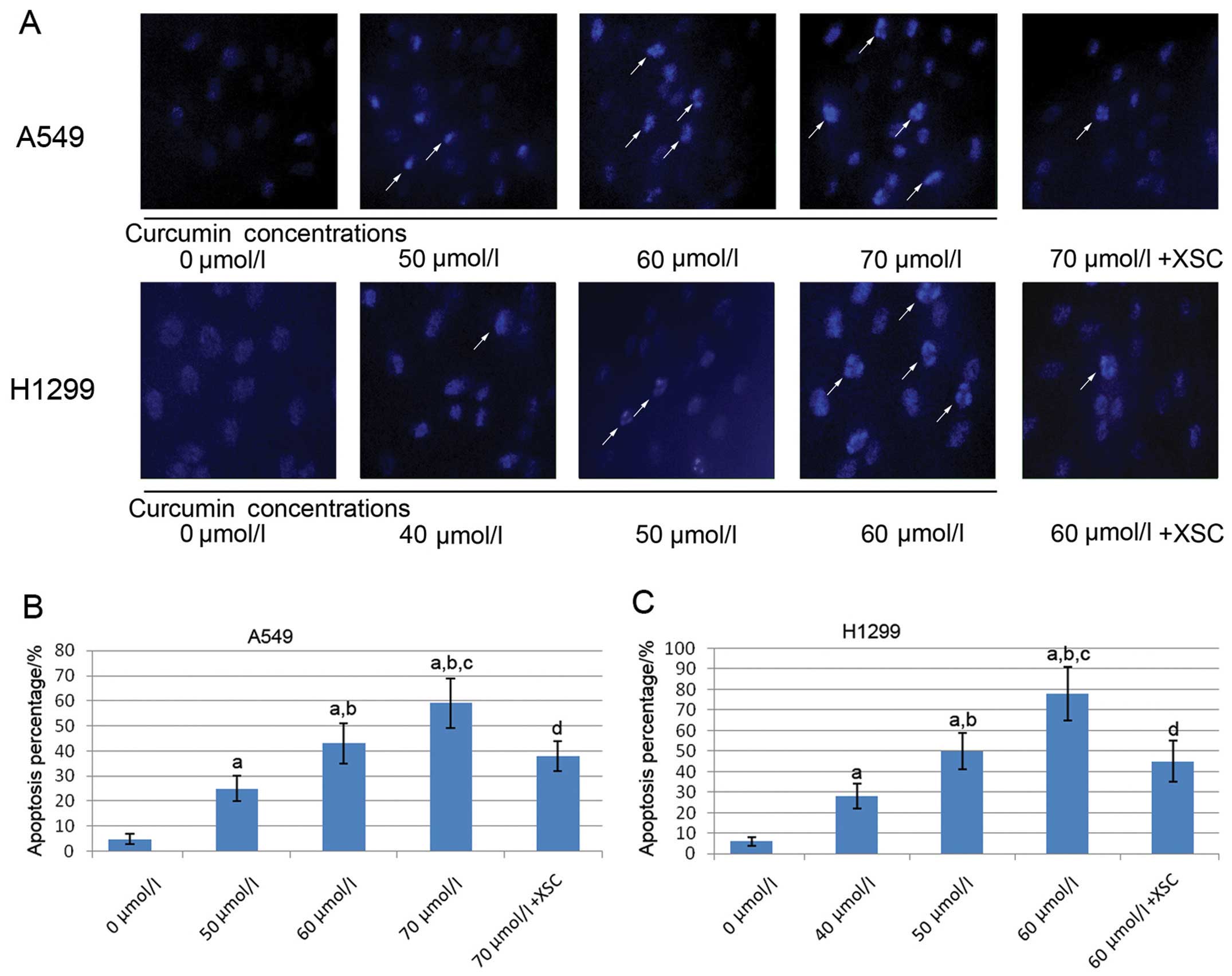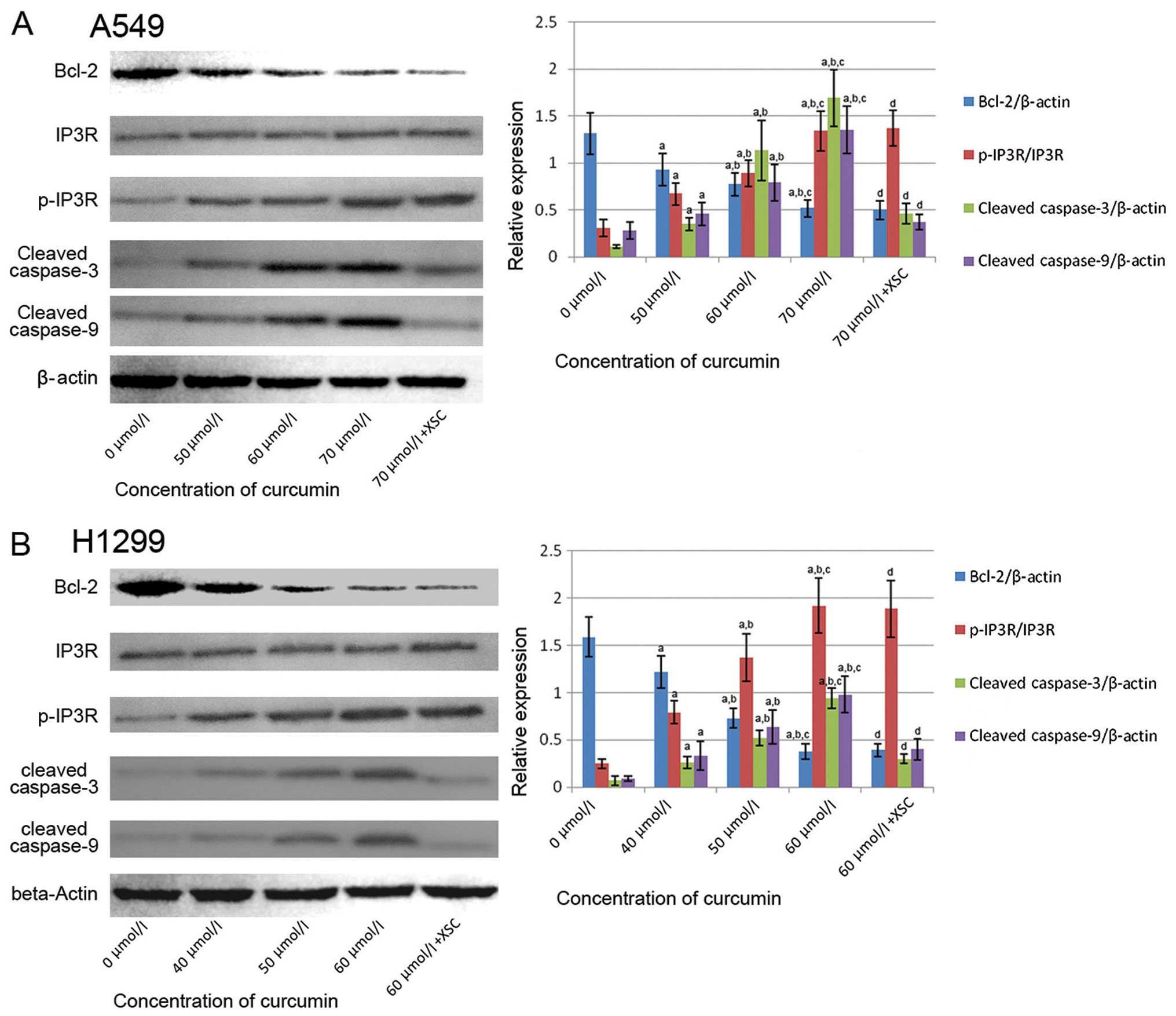|
1
|
Ike S, Tanaka F, Ueda M, et al: Evaluation
of improvement in prognosis in surgical cases of lung cancer based
on the 5-year survival rate. Nippon Kyobu Geka Gakkai Zasshi.
44:312–313. 1996.In Japanese.
|
|
2
|
Hung JJ, Jeng WJ, Hsu WH, Chou TY, Huang
BS and Wu YC: Predictors of death, local recurrence, and distant
metastasis in completely resected pathological stage-I
non-small-cell lung cancer. J Thorac Oncol. 7:1115–1123. 2012.
View Article : Google Scholar : PubMed/NCBI
|
|
3
|
Saisho S, Yasuda K, Maeda A, et al:
Post-recurrence survival of patients with non-small-cell lung
cancer after curative resection with or without induction/adjuvant
chemotherapy. Interact Cardiovasc Thorac Surg. 16:166–172. 2013.
View Article : Google Scholar :
|
|
4
|
Li JH, Yue W, Huang Z, et al: Calcium
overload induces C6 rat glioma cell apoptosis in sonodynamic
therapy. Int J Radiat Biol. 87:1061–1066. 2011. View Article : Google Scholar : PubMed/NCBI
|
|
5
|
Nakayama H, Fujio Y and Yamaguchi O:
Calcium dependent signaling in cardiac hypertrophy and cell death.
Clin Calcium. 23:505–515. 2013.In Japanese. PubMed/NCBI
|
|
6
|
Seo SR and Seo JT: Calcium overload is
essential for the acceleration of staurosporine-induced cell death
following neuronal differentiation in PC12 cells. Exp Mol Med.
41:269–276. 2009. View Article : Google Scholar : PubMed/NCBI
|
|
7
|
Ma TS: Sarcoplasmic reticulum calcium
ATPase overexpression induces cellular calcium overload and cell
death. Ann NY Acad Sci. 853:325–328. 1998. View Article : Google Scholar
|
|
8
|
Johnson GG, White MC and Grimaldi M:
Stressed to death: targeting endoplasmic reticulum stress response
induced apoptosis in gliomas. Curr Pharm Des. 17:284–292. 2011.
View Article : Google Scholar : PubMed/NCBI
|
|
9
|
He Q, Lee DI, Rong R, et al: Endoplasmic
reticulum calcium pool depletion-induced apoptosis is coupled with
activation of the death receptor 5 pathway. Oncogene. 21:2623–2633.
2002. View Article : Google Scholar : PubMed/NCBI
|
|
10
|
Deniaud A, Sharaf el dein O, Maillier E,
et al: Endoplasmic reticulum stress induces calcium-dependent
permeability transition, mitochondrial outer membrane
permeabilization and apoptosis. Oncogene. 27:285–299. 2008.
View Article : Google Scholar
|
|
11
|
Kasumu AW, Liang X, Egorova P, Vorontsova
D and Bezprozvanny I: Chronic suppression of inositol
1,4,5-triphosphate receptor-mediated calcium signaling in
cerebellar purkinje cells alleviates pathological phenotype in
spinocerebellar ataxia 2 mice. J Neurosci. 32:12786–12796. 2012.
View Article : Google Scholar : PubMed/NCBI
|
|
12
|
Rong YP, Aromolaran AS, Bultynck G, et al:
Targeting Bcl-2-IP3 receptor interaction to reverse Bcl-2’s
inhibition of apoptotic calcium signals. Mol Cell. 31:255–265.
2008. View Article : Google Scholar : PubMed/NCBI
|
|
13
|
Puliyappadamba VT, Cheriyan VT,
Thulasidasan AK, et al: Nicotine-induced survival signaling in lung
cancer cells is dependent on their p53 status while its
down-regulation by curcumin is independent. Mol Cancer. 9:2202010.
View Article : Google Scholar : PubMed/NCBI
|
|
14
|
Wang WH, Chiang IT, Ding K, et al:
Curcumin-induced apoptosis in human hepatocellular carcinoma j5
cells: Critical role of ca(+2)-dependent pathway. Evid Based
Complement Alternat Med. 2012:5129072012. View Article : Google Scholar : PubMed/NCBI
|
|
15
|
Zi X and Zhang R: Anti-cancer molecular
targets of natural products. Curr Cancer Drug Targets. 13:4852013.
View Article : Google Scholar : PubMed/NCBI
|
|
16
|
Cragg GM, Grothaus PG and Newman DJ:
Impact of natural products on developing new anti-cancer agents.
Chem Rev. 109:3012–3043. 2009. View Article : Google Scholar : PubMed/NCBI
|
|
17
|
Sun W, Wang W, Kim J, et al: Anti-cancer
effect of resveratrol is associated with induction of apoptosis via
a mitochondrial pathway alignment. Adv Exp Med Biol. 614:179–186.
2008. View Article : Google Scholar : PubMed/NCBI
|
|
18
|
Wang W, Rayburn ER, Hao M, et al:
Experimental therapy of prostate cancer with novel natural product
anti-cancer ginsenosides. Prostate. 68:809–819. 2008. View Article : Google Scholar : PubMed/NCBI
|
|
19
|
Liu XY, Ruan LM, Mao WW, Wang JQ, Shen YQ
and Sui MH: Preparation of RGD-modified long circulating liposome
loading matrine, and its in vitro anti-cancer effects. Int J Med
Sci. 7:197–208. 2010. View Article : Google Scholar : PubMed/NCBI
|
|
20
|
Franek KJ, Zhou Z, Zhang WD and Chen WY:
In vitro studies of baicalin alone or in combination with Salvia
miltiorrhiza extract as a potential anticancer agent. Int J Oncol.
26:217–224. 2005.
|
|
21
|
Noorafshan A and Ashkani-Esfahani S: A
review of therapeutic effects of curcumin. Curr Pharm Des.
19:2032–2046. 2013.
|
|
22
|
Mehta HJ, Patel V and Sadikot RT: Curcumin
and lung cancer-a review. Target Oncol. May 21–2014.Epub ahead of
print. View Article : Google Scholar
|
|
23
|
Darvesh AS, Aggarwal BB and Bishayee A:
Curcumin and liver cancer: a review. Curr Pharm Biotechnol.
13:218–228. 2012. View Article : Google Scholar
|
|
24
|
Jiang L, Liu Y, Ma MM, Tang YB, Zhou JG
and Guan YY: Mitochondria dependent pathway is involved in the
protective effect of bestrophin-3 on hydrogen peroxide-induced
apoptosis in basilar artery smooth muscle cells. Apoptosis.
18:556–565. 2013. View Article : Google Scholar : PubMed/NCBI
|
|
25
|
Sawai H and Domae N: Release of cytochrome
c from mitochondria precedes Bax translocation/activation in Triton
X-100-induced apoptosis. Leuk Res. 32:445–453. 2008. View Article : Google Scholar
|
|
26
|
Wang S and El-Deiry WS: Cytochrome c: a
crosslink between the mitochondria and the endoplasmic reticulum in
calcium-dependent apoptosis. Cancer Biol Ther. 3:44–46. 2004.
View Article : Google Scholar : PubMed/NCBI
|
|
27
|
Zamzami N and Kroemer G: Methods to
measure membrane potential and permeability transition in the
mitochondria during apoptosis. Methods Mol Biol. 282:103–115.
2004.PubMed/NCBI
|
|
28
|
Soengas MS, Alarcon RM, Yoshida H, et al:
Apaf-1 and caspase-9 in p53-dependent apoptosis and tumor
inhibition. Science. 284:156–159. 1999. View Article : Google Scholar : PubMed/NCBI
|
|
29
|
Pinton P, Giorgi C, Siviero R, Zecchini E
and Rizzuto R: Calcium and apoptosis: ER-mitochondria
Ca2+ transfer in the control of apoptosis. Oncogene.
27:6407–6418. 2008. View Article : Google Scholar : PubMed/NCBI
|
|
30
|
Kurskii MD, Tugai VA and Fedoriv AN:
Effect of serotonin and calcium on separate components of
respiratory chain of mitochondria in some rabbit tissues. Ukr
Biokhim Zh. 42:584–588. 1970.In Ukrainian.
|
|
31
|
Komary Z, Tretter L and Adam-Vizi V:
Membrane potential-related effect of calcium on reactive oxygen
species generation in isolated brain mitochondria. Biochim Biophys
Acta. 1797:922–928. 2010. View Article : Google Scholar : PubMed/NCBI
|
|
32
|
Vanderheyden V, Devogelaere B, Missiaen L,
De Smedt H, Bultynck G and Parys JB: Regulation of inositol
1,4,5-trispho-sphate-induced Ca2+ release by reversible
phosphorylation and dephosphorylation. Biochim Biophys Acta.
1793:959–970. 2009. View Article : Google Scholar : PubMed/NCBI
|
|
33
|
Giorgi C, Wieckowski MR, Pandolfi PP and
Pinton P: Mitochondria associated membranes (MAMs) as critical hubs
for apoptosis. Commun Integr Biol. 4:334–335. 2011. View Article : Google Scholar : PubMed/NCBI
|
|
34
|
Hahn P, Lindsten T, Ying GS, et al:
Proapoptotic bcl-2 family members, Bax and Bak, are essential for
developmental photo-receptor apoptosis. Invest Ophthalmol Vis Sci.
44:3598–3605. 2003. View Article : Google Scholar : PubMed/NCBI
|
|
35
|
Rong YP, Bultynck G, Aromolaran AS, et al:
The BH4 domain of Bcl-2 inhibits ER calcium release and apoptosis
by binding the regulatory and coupling domain of the IP3 receptor.
Proc Natl Acad Sci USA. 106:14397–14402. 2009. View Article : Google Scholar : PubMed/NCBI
|
|
36
|
Hanson CJ, Bootman MD, Distelhorst CW,
Wojcikiewicz RJ and Roderick HL: Bcl-2 suppresses Ca2+
release through inositol 1,4,5-trisphosphate receptors and inhibits
Ca2+ uptake by mitochondria without affecting ER calcium
store content. Cell Calcium. 44:324–338. 2008. View Article : Google Scholar : PubMed/NCBI
|
|
37
|
Chen R, Valencia I, Zhong F, et al: Bcl-2
functionally interacts with inositol 1,4,5-trisphosphate receptors
to regulate calcium release from the ER in response to inositol
1,4,5-trisphosphate. J Cell Biol. 166:193–203. 2004. View Article : Google Scholar : PubMed/NCBI
|



















